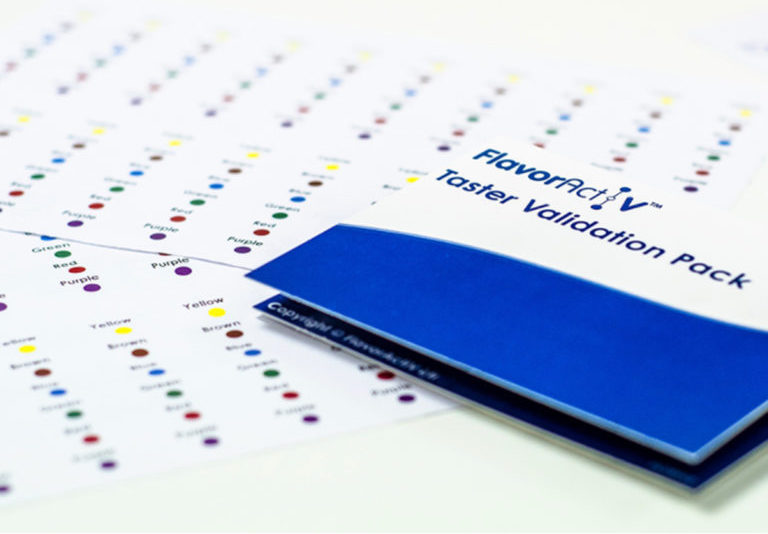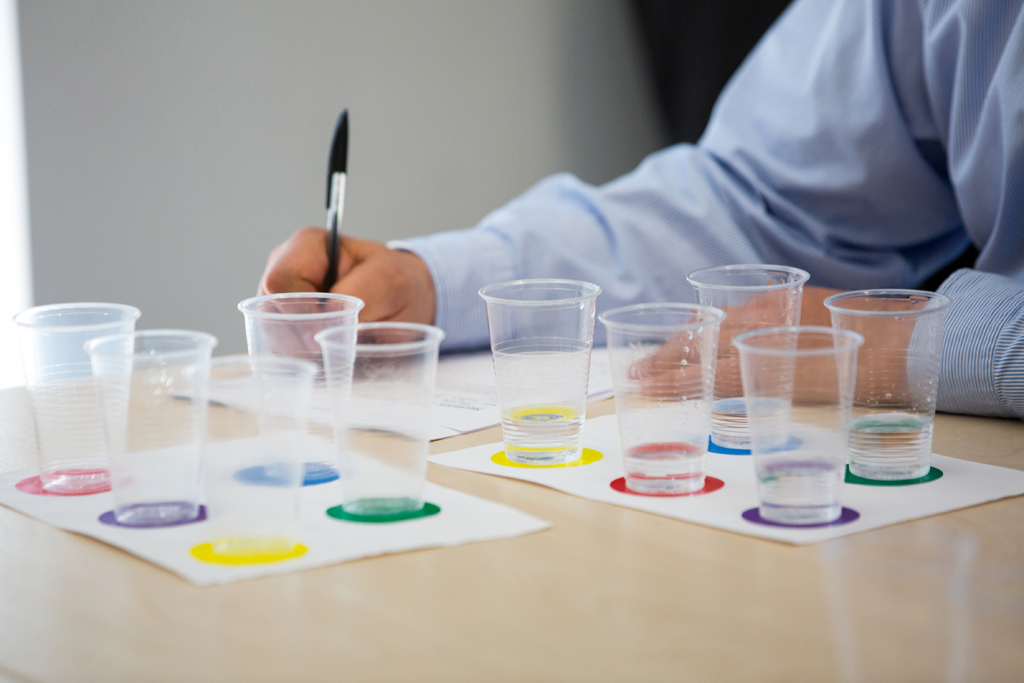
Flavoractiv offers sensory reference points tailored to beverage industries followed by calibration schemes tied to those points. Courtesy photo.
The California-based Coffee Quality Institute (CQI) will be incorporating solutions provided by UK-based Flavoractiv (styled as FlavorActiV) in its ongoing training and calibration programs.
A strategic partnership between the two organizations was announced today. Details on the financial arrangement or duration of the agreement have not been made public.
The nonprofit CQI is known in large part for its Q grader certification program for coffee tasting and development professionals, including Q Arabica, Q Robusta and Q Processing certifications. The group has historically also offered tailored expertise in technical services in coffee quality development projects.
Flavoractiv, which launched more than 20 years ago offering quality control and analysis solutions in the beer industry, has since expanded to include major clients throughout the beverage industry. The firm produces physical capsules that impart a specific attribute — including defects — associated with beverages, in this case coffee.
These flavor reference points, or standards, are then used in calibrations led by Flavoractiv through its in-house calibration scheme. The Flavoractiv calibration platform won a Specialty Coffee Association “Best New Product Award” in the Technology category last year.
“The solutions supplied to CQI will be tailored to their community based on the recommendations from the program leaders with input from Flavoractiv,” Flavoractiv Marketing Officer Tom Dowdell told Daily Coffee News, noting that the firm also has a separate, publicly available coffee calibration program through its website.
Related Reading
- New Research Finds Specific Compounds that Affect Coffee Mouthfeel
- What Researchers Learned from the Remarkable Stenophylla Tasting
- Evolving the Concept of Specialty Coffee, Part I: Green Coffee Quality
Flavoractiv back in 2017 introduced 24 of its flavor reference capsules specifically for the coffee industry. The standards were correlated with the coffee sensory lexicon project, as led by World Coffee Research, Kansas State University researchers, and the SCA through its revised coffee tasters flavor wheel.
“One of the long-term values I see benefitting coffee evaluation in general is to differentiate a ‘defect’ from an ‘off’ flavor and calibrate to their respective flavor profiles,” Todd Arnette, manager of CQI’s quality evaluation program, said in an announcement of the Flavoractiv partnership. “Another opportunity is to use these tools to quantify the global language of coffee quality. The capsules form a globally consistent foundation for flavors that we can then further explore in greater detail in a regional and cultural context.”







Comment